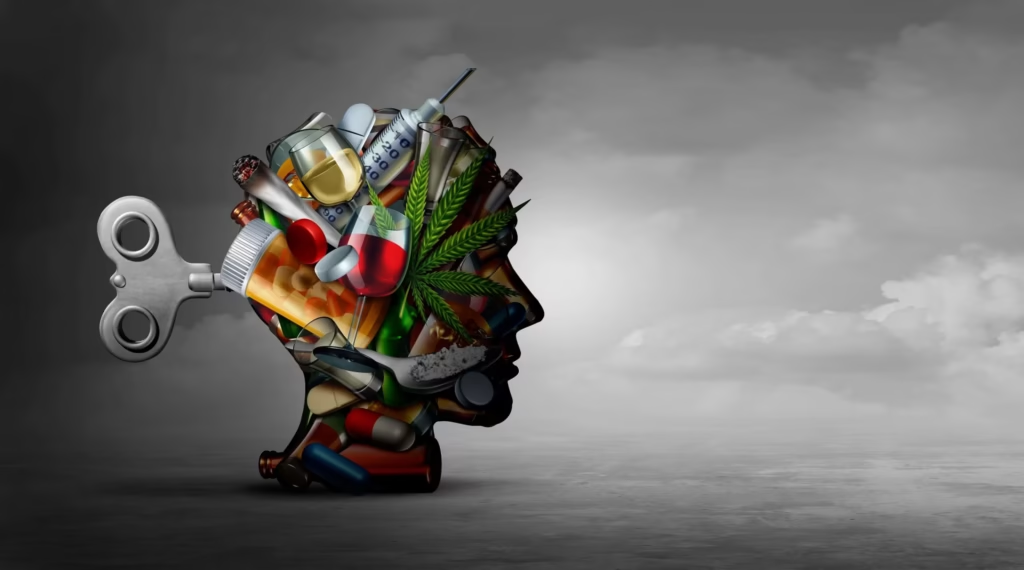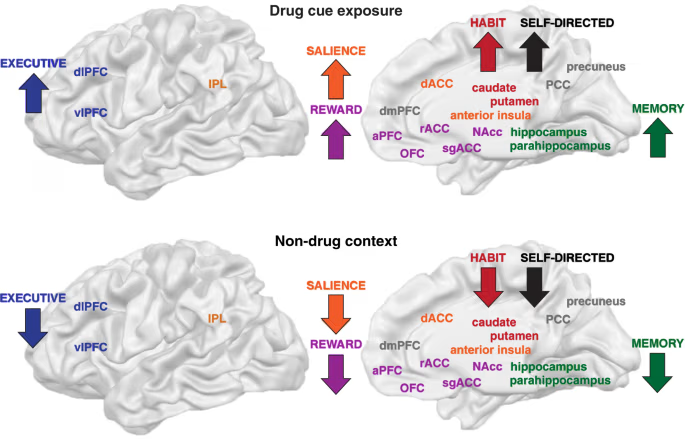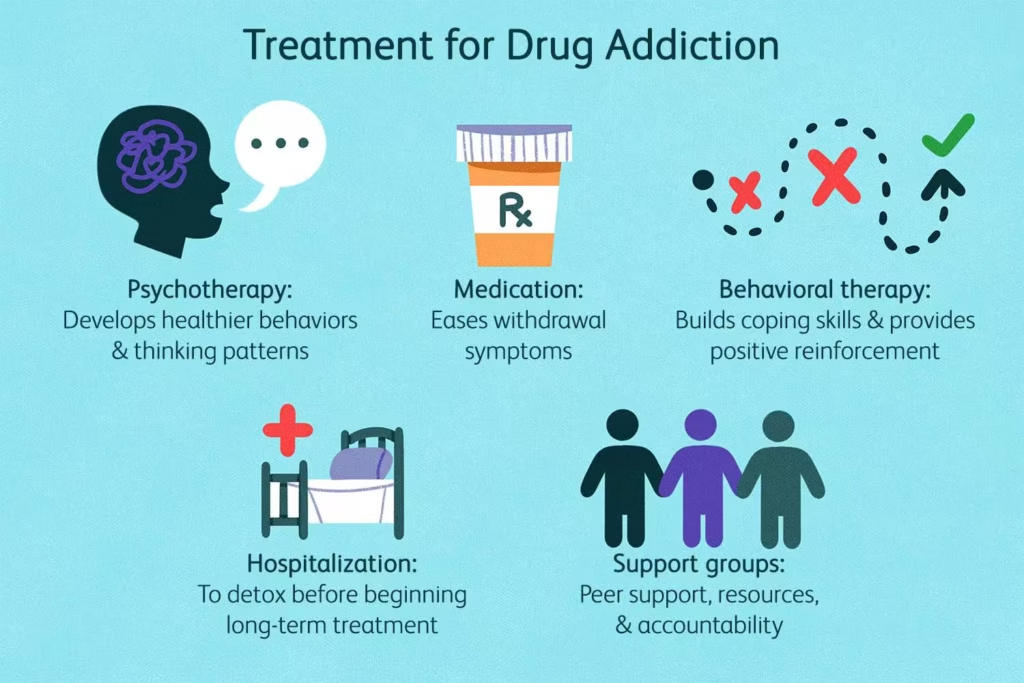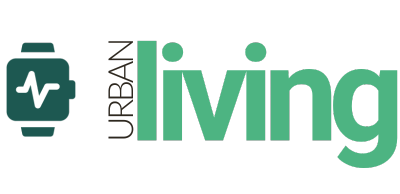Drug addiction represents one of the most challenging health issues facing individuals and families across Singapore today.
Understanding the complexities of substance use disorders and the available treatment options can make the difference between continued struggle and successful recovery.
This comprehensive guide explores everything you need to know about drug addiction treatment in Singapore, from recognizing the early warning signs to navigating the various therapeutic interventions available.
This might help: Which Psychologist in Singapore Should You Consider? (Sort by Reviews)
Understanding Drug Addiction and Substance Use Disorders

Substance use disorders manifest when drug consumption significantly interferes with an individual’s physical health, mental wellbeing, work performance, educational pursuits, or personal relationships.
The condition extends far beyond simple recreational use, evolving into a compulsive pattern that persists despite mounting negative consequences.
The substances most commonly associated with addiction include:
- Opioids: Heroin, oxycodone, fentanyl, and codeine
- Marijuana: Including synthetic cannabinoids such as spice
- Stimulants: Amphetamines, methamphetamine, and MDMA (ecstasy)
- Sedatives: Prescription painkillers and sleeping medications, including ketamine
- Inhalants: Nitrous oxide, butane, and other volatile substances
- Hallucinogens: LSD and other mind-altering compounds
The landscape of substance abuse continues evolving rapidly, with users discovering new methods to circumvent legal restrictions and achieve altered states of consciousness.
This reality underscores the importance of considering any mood-altering or mind-altering chemical as potentially addictive.
Related article: Which Psychiatrist in Singapore Should You Consider?
The Neuroscience Behind Addiction

When substances are consumed repeatedly, they disrupt the brain’s natural reward system, leading to profound changes in decision-making processes and impulse control.
These neurological alterations create a compulsive drive to seek and consume drugs, even when individuals recognize the devastating consequences of their actions.
The affected person often loses the ability to consistently abstain from substance use and may struggle to acknowledge the problems accumulating in their life as a direct result of their drug consumption.
As the disorder progresses, individuals frequently enter periods of denial, rationalizing their substance use to themselves and others.
This psychological defense mechanism makes treatment more challenging, as the person may resist acknowledging the severity of their situation.
The pattern typically includes cycles of relapse and remission, creating an ongoing struggle that requires professional intervention and sustained support.
Related article: Alcohol Addiction Treatment in Singapore
Root Causes and Risk Factors
Understanding why some individuals develop substance use disorders while others do not requires examining multiple interconnected factors that influence addiction vulnerability.
Genetic Predisposition
Research consistently demonstrates that genetics plays a substantial role in determining addiction susceptibility. Specific gene variants have been identified that increase an individual’s risk of developing substance use disorders.
These genetic factors influence how the brain processes rewards and responds to various drugs, creating biological vulnerabilities that may predispose certain individuals to addiction.
Neurobiological Factors
The brain’s neural networks undergo complex changes when exposed to addictive substances.
These biological modifications affect the reward system, decision-making capabilities, and impulse control mechanisms.
Over time, these alterations create lasting changes that can persist long after drug use has ceased, contributing to the chronic nature of addiction.
Related article: Comprehensive Guide to Gambling Addiction Treatment in Singapore
Environmental Influences
Environmental factors significantly impact addiction risk, particularly when exposure occurs during critical developmental periods.
Early exposure to drugs, peer pressure, socioeconomic status, family dynamics, and community drug availability all contribute to an individual’s likelihood of developing substance use problems.
Neighborhoods with high drug availability and limited resources for positive activities may inadvertently increase addiction risk among residents.
Traumatic Life Experiences
Adverse life experiences, including trauma, chronic stress, and negative childhood events, create psychological vulnerabilities that may lead to substance use as a coping mechanism.
Individuals who have experienced abuse, neglect, loss, or other traumatic events often turn to drugs or alcohol to manage emotional pain or escape difficult circumstances.
This maladaptive coping strategy can quickly evolve into full-blown addiction.
You might be interested: Anxiety Therapy in Singapore: Treatment and Recovery
Recognizing the Signs and Symptoms
Early recognition of substance use disorders enables more effective intervention and treatment outcomes.
The signs and symptoms of drug addiction span multiple domains of functioning and typically worsen over time without appropriate treatment.
Behavioral and Psychological Indicators
Individuals struggling with addiction often exhibit multiple warning signs:
- Impaired control: Taking larger amounts of substances for longer periods than originally intended
- Obsessive preoccupation: Becoming increasingly focused on when and how to obtain the next dose
- Failed attempts: Unsuccessful efforts to cut down or limit substance use despite genuine intentions
- Time displacement: Spending increasing amounts of time obtaining, using, or recovering from substance use
- Neglected responsibilities: Failing to meet obligations at work, school, or home
- Relationship deterioration: Experiencing conflicts and problems in personal relationships
- Activity abandonment: Reducing or completely stopping previously enjoyed social, occupational, and recreational activities
- Hazardous use patterns: Consuming substances in dangerous situations or unsafe combinations
- Continued use despite consequences: Persisting with substance use even when experiencing negative physical or psychological effects
You might like: Complete Guide to Anger Management in Singapore
Physical and Social Consequences
The physical toll of addiction becomes apparent through various symptoms including deteriorating personal hygiene, dramatic weight changes, skin problems, and disrupted sleep patterns.
Social functioning declines as individuals fail to meet obligations at work, school, or home, leading to academic failure, job loss, or family conflicts.
Hazardous use patterns emerge, with individuals consuming substances in dangerous situations or combinations.
Despite experiencing negative physical and psychological consequences, the compulsive nature of addiction drives continued use.
Tolerance develops, requiring increased quantities to achieve the desired effects, while withdrawal symptoms emerge when substance use is discontinued.
Related article: Psychotherapy in Singapore: Types, Benefits, and How to Get Started
Comprehensive Effects of Drug Addiction
The impact of substance use disorders extends across multiple dimensions of human experience, affecting every aspect of an individual’s life and well-being.
| Domain | Effects and Consequences |
|---|---|
| Physical | Skin deterioration, significant weight fluctuations, nutritional deficiencies, sleep disturbances, organ damage, increased infection risk |
| Psychological | Heightened anxiety and depression, increased suicidal thoughts, paranoia, cognitive impairment, memory problems |
| Emotional | Emotional instability, inability to regulate feelings effectively, mood swings, loss of emotional control |
| Social | Progressive isolation from support networks, secretive behavior, relationship breakdown, manipulation of others |
| Spiritual | Loss of personal meaning and purpose, disconnection from values, spiritual emptiness, existential distress |
Identifying Substance Use in Loved Ones
Family members and friends often serve as the first line of detection for emerging substance use problems.
Recognizing the warning signs early can facilitate timely intervention and improve treatment outcomes.
Key indicators to watch for include:
- Physical evidence: Presence of drug paraphernalia or unusual items
- Behavioral changes: Secretive or deceptive behavior that triggers concerns about dishonesty
- Personal care decline: Noticeable deterioration in personal grooming and hygiene standards
- Routine disruption: Dramatic changes in daily schedules and established patterns
- Mood fluctuations: Unusual emotional changes including increased irritability, restlessness, and discontent
- Sleep pattern changes: Significant alterations in sleep habits, including insomnia or excessive sleeping
- Social withdrawal: Increasing isolation from family and friends
Professional Assessment and Evaluation
Comprehensive addiction assessment forms the foundation of effective treatment planning.
Professional evaluation involves multiple components designed to gather detailed information about an individual’s substance use patterns, treatment history, overall health status, and psychosocial functioning.
The assessment process typically begins with standardized questionnaires and self-assessment tools that help quantify the severity of substance use problems.
Physical examinations identify medical complications related to drug use, while detailed interviews using open-ended questions provide essential information for accurate diagnosis.
Various screening instruments may be employed, including the National Institute on Drug Use Screening Tool, CAGE assessment, CRAFFT Screening Tool, and Drug Abuse Screening Test for Adolescents.
These validated tools help professionals determine the appropriate level of care and treatment recommendations for each individual case.
Treatment Approaches and Interventions

Effective drug addiction treatment in Singapore encompasses a range of evidence-based interventions tailored to meet individual needs and circumstances.
Treatment intensity and duration vary based on addiction severity, co-occurring mental health conditions, and personal factors that influence recovery potential.
Medical Detoxification and Stabilization
For individuals with severe physical dependence, medically supervised detoxification provides safe withdrawal management under professional monitoring.
This process may occur in inpatient settings for complex cases or through outpatient medical management with home-based support for appropriate candidates.
Medical detoxification addresses the acute physical symptoms of withdrawal while ensuring patient safety throughout the process.
Healthcare professionals monitor vital signs, manage complications, and provide medications when necessary to ease discomfort and prevent dangerous withdrawal symptoms.
Therapeutic Interventions
Following stabilization, ongoing therapy forms the cornerstone of addiction treatment. Evidence-based therapeutic approaches include:
- Cognitive Behavioral Therapy (CBT): Helps individuals identify and modify thought patterns and behaviors that contribute to substance use
- Dialectical Behavioral Therapy (DBT): Teaches emotional regulation skills and distress tolerance techniques, particularly beneficial for individuals with co-occurring mental health conditions
- Acceptance and Commitment Therapy (ACT): Focuses on psychological flexibility and value-based living to support sustainable recovery
- Motivational Interviewing: Enhances individual motivation for change through collaborative conversation techniques
- Relapse Prevention Therapy: Provides practical tools and strategies for maintaining long-term sobriety
These therapeutic modalities address the psychological aspects of addiction and provide practical tools for maintaining long-term sobriety.
Relapse Prevention and Continuing Care
Comprehensive treatment plans incorporate extensive relapse prevention work designed to identify personal triggers, develop coping strategies, and create sustainable recovery plans.
Individuals learn to recognize high-risk situations and implement alternative responses that support their sobriety goals.
Continuing care components may include intensive outpatient groups, ongoing individual therapy, family counseling, and peer support programs.
These services provide sustained support during the vulnerable early recovery period and help individuals develop the skills necessary for long-term success.
Singapore’s Rehabilitation Framework
Singapore has developed a comprehensive approach to drug addiction treatment that emphasizes rehabilitation over punishment for individuals caught with substances for personal consumption.
This framework recognizes addiction as a health condition requiring treatment rather than simply a criminal justice issue.
Enhanced Direct Supervision Order (EDSO)
First-time offenders assessed as low-risk may receive an Enhanced Direct Supervision Order, allowing them to remain in the community while receiving supervised treatment and support.
This program assigns community case managers who work with individuals and their families throughout the rehabilitation process.
Participants must attend mandatory counseling sessions and submit to regular drug testing while maintaining residence in their homes. The counseling components incorporate psychology-based interventions including goal-setting exercises and family engagement strategies. Regular assessments ensure that interventions are adjusted based on individual progress and changing needs.
Drug Rehabilitation Centre (DRC) Programs
Individuals with moderate to high relapse risk or repeat offenses undergo intensive rehabilitation at specialized Drug Rehabilitation Centres.
These programs provide comprehensive treatment delivered by trained professionals, with program intensity and duration customized according to individual rehabilitation needs.
The DRC approach includes psychological intervention programs targeting drug use behaviors, family programs that develop relationship skills, and vocational training designed to support successful community reintegration.
Treatment duration typically extends twelve months or longer, with programs separated by risk level to ensure appropriate intervention intensity.
Post-Release Supervision and Monitoring
All individuals receive five-year supervision orders following treatment completion, incorporating regular mandatory drug testing to detect and deter relapse.
This extended monitoring period helps maintain accountability while providing opportunities for early intervention if substance use resumes.
Individuals who demonstrate consistent compliance may qualify for less frequent hair analysis testing, though this privilege may be revoked if supervision terms are violated.
The extended supervision period supports the development of stable, drug-free lifestyle patterns essential for long-term recovery success.
Specialized Treatment Programs
SOAR (Substance or Alcohol Recovery) Programme
The SOAR program represents a structured therapeutic intervention designed specifically for individuals struggling with substance or alcohol abuse problems. This comprehensive program combines individual and group therapy components delivered by trained addiction specialists.
The basic program structure includes six individual counseling sessions, two optional family therapy sessions, and four group therapy sessions. Some participants may require additional sessions based on their specific needs and treatment progress.
The program incorporates evidence-based practices and addresses both the psychological and social aspects of addiction recovery.
Prescription Drug Addiction Treatment
Singapore recognizes the growing challenge of prescription medication addiction, which often affects high-functioning individuals who initially used medications for legitimate medical purposes.
These cases can be particularly difficult to identify due to the individual’s maintained professional and social functioning.
Treatment for prescription drug addiction follows similar principles to other substance use disorders but may require specialized approaches given the medical context of the original drug use.
Professional assessment helps determine whether continued medical supervision is necessary while addressing the addictive patterns that have developed.
Family and Community Support
Addiction affects entire family systems, not just the individual struggling with substance use. Comprehensive treatment approaches recognize the importance of family involvement in both the development and resolution of addiction problems.
Family therapy and education programs help loved ones understand addiction as a medical condition while developing skills to support recovery effectively.
Community-based support services play a crucial role in long-term recovery success.
These may include peer support groups, vocational rehabilitation programs, housing assistance, and ongoing mental health services.
Building a strong support network helps individuals navigate the challenges of early recovery and maintain motivation for continued sobriety.
Prevention and Early Intervention
Effective addiction prevention strategies focus on reducing risk factors while strengthening protective factors that help individuals resist substance use.
Education programs that provide accurate information about drug risks, combined with skill-building activities that enhance decision-making capabilities, form important components of prevention efforts.
Early intervention programs target individuals who may be experimenting with substances or showing early signs of problematic use.
These interventions can prevent the progression to full-blown addiction while addressing underlying issues that may contribute to substance use vulnerability.
Frequently Asked Questions
What types of substances are most commonly treated in Singapore addiction programs?
Singapore’s treatment programs address a wide range of addictive substances including opioids like heroin and prescription painkillers, stimulants such as methamphetamine and MDMA, marijuana and synthetic cannabinoids, sedatives including sleeping pills and tranquilizers, hallucinogens like LSD, and various inhalants.
Treatment approaches are adapted based on the specific substance involved and the individual’s unique circumstances.
How long does drug addiction treatment typically last in Singapore?
Treatment duration varies significantly based on individual needs, addiction severity, and chosen treatment modality.
Medical detoxification may last several days to weeks, while comprehensive rehabilitation programs often extend twelve months or longer.
Outpatient therapy may continue for months or years, and post-treatment supervision in Singapore lasts five years to support long-term recovery maintenance.
What happens if someone relapses during or after treatment?
Relapse is considered a common part of the recovery process rather than a treatment failure.
When relapse occurs, treatment teams reassess the individual’s needs and adjust the treatment plan accordingly.
Additional support services, intensive interventions, or longer-term care may be recommended. The key is returning to treatment quickly and learning from the relapse experience to strengthen future recovery efforts.
Are family members included in the treatment process?
Yes, family involvement is strongly encouraged and often essential for successful recovery outcomes.
Treatment programs may include family therapy sessions, educational workshops for family members, and ongoing support services.
Family participation helps improve communication, rebuild trust, address relationship issues related to addiction, and create a supportive home environment for recovery.
What is the difference between inpatient and outpatient treatment options?
Inpatient treatment involves residing at a treatment facility for the duration of the program, providing intensive, round-the-clock support and monitoring.
This option is typically recommended for individuals with severe addiction, medical complications, or those who have been unsuccessful with outpatient treatment.
Outpatient treatment allows individuals to live at home while attending scheduled therapy sessions and medical appointments, making it suitable for those with strong support systems and less severe addiction.
How much does drug addiction treatment cost in Singapore?
Treatment costs vary widely depending on the type and duration of services required.
Government-funded programs through Singapore’s healthcare system may provide treatment at reduced costs, while private treatment facilities typically charge higher fees.
Many treatment programs offer payment plans or sliding fee scales based on individual financial circumstances. It’s important to discuss costs and payment options during the initial assessment process.
What qualifications should I look for in addiction treatment professionals?
Qualified addiction treatment professionals should have appropriate educational credentials in fields such as psychology, social work, counseling, or medicine, along with specialized training in addiction treatment.
Look for professionals who are licensed by relevant Singapore regulatory bodies and have experience working with individuals who have similar addiction issues. Board certifications in addiction medicine or addiction counseling indicate additional specialized expertise.
Can someone be forced into drug addiction treatment?
While voluntary participation generally leads to better outcomes, Singapore’s legal framework allows for court-ordered treatment in certain circumstances.
Family members may also pursue intervention strategies to encourage treatment participation.
However, internal motivation for change significantly improves treatment success, so efforts to help individuals recognize the need for treatment and develop personal motivation are important components of the process.
What role does mental health play in drug addiction treatment?
Mental health conditions frequently co-occur with substance use disorders, requiring integrated treatment approaches that address both issues simultaneously.
Common co-occurring conditions include depression, anxiety, trauma-related disorders, and bipolar disorder.
Comprehensive assessment identifies mental health concerns, and treatment plans incorporate appropriate psychiatric care, medication management, and specialized therapy techniques.
How can employers support employees struggling with drug addiction?
Employers can play a crucial role in supporting recovery by implementing employee assistance programs, providing access to treatment resources, offering flexible scheduling for treatment appointments, and creating supportive workplace cultures that reduce stigma around addiction.
Clear policies regarding substance use, combined with opportunities for rehabilitation rather than immediate termination, can encourage employees to seek help when needed.
What support services are available after completing formal treatment?
Post-treatment support services include ongoing individual or group therapy, peer support groups, sober living arrangements, vocational rehabilitation, continuing education opportunities, and family support services.
Many treatment programs offer alumni services that provide ongoing connection and support. Building a strong network of recovery support is essential for maintaining long-term sobriety and preventing relapse.
How does Singapore’s approach to drug addiction differ from other countries?
Singapore emphasizes rehabilitation over punishment for drug consumption offenses, with first-time offenders often receiving treatment rather than criminal prosecution.
The system includes comprehensive supervision and monitoring components that extend for five years post-treatment.
This approach recognizes addiction as a health condition requiring medical and psychological intervention rather than purely a criminal justice issue, though enforcement of drug laws remains strict.

